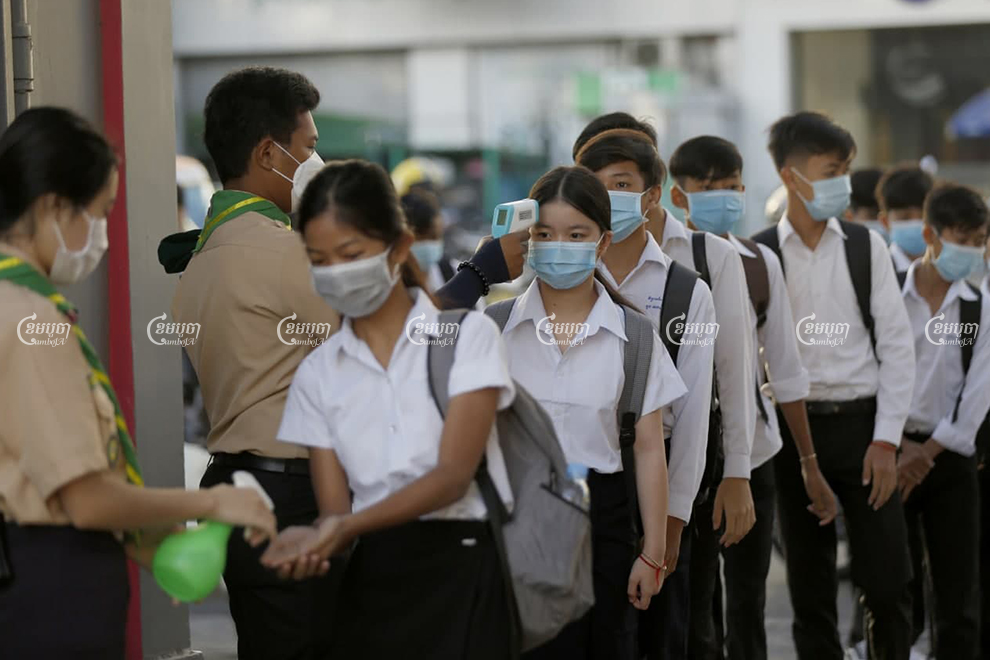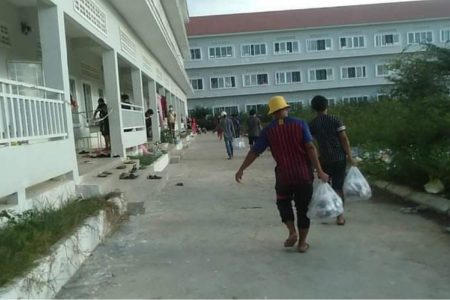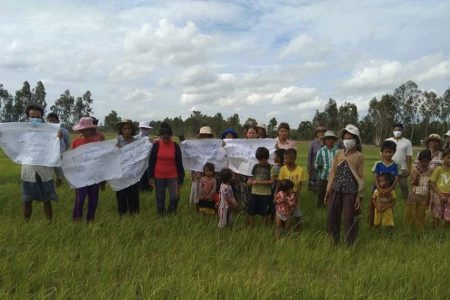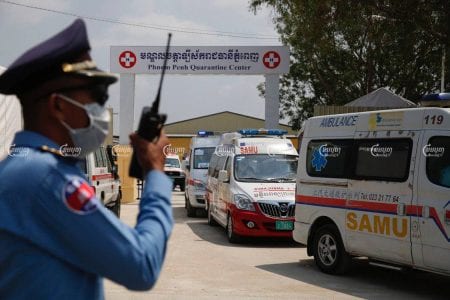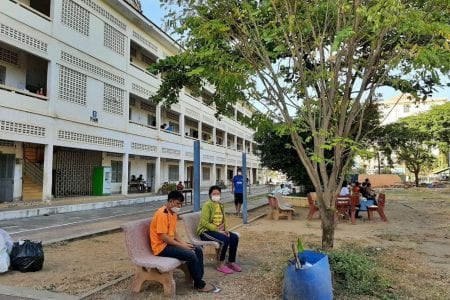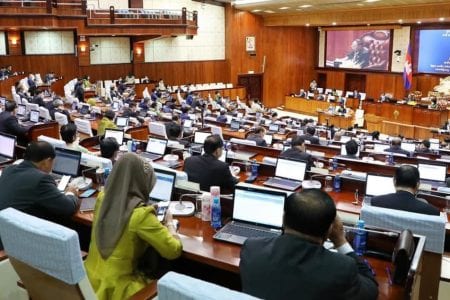Millions of students began a new academic year on Monday following a year of interruptions by the Covid-19 pandemic, while about 35 schools along the border remain closed for learning as they are used as quarantine facilities for migrant workers returning from Thailand.
Updated safety protocols were rolled in about 18,000 private and public schools across the country, with students from some of the converted schools transferring to nearby facilities to begin the shortened year, Education Minister Hang Chuon Naron said.
“To join in protecting against the Covid-19 disease for the new year … the ministry issued instructions on studying health safety,” he said. “Please, all guardians pay attention to additionally train the children.”
More than 30 schools along the border became temporary quarantine centers for returning migrants in recent weeks, as a new outbreak of Covid-19 took hold in the Thai province of Samut Sakhon, which has a large population of foreigners working in the seafood industry.
More than 12,000 Cambodians have returned since the outbreak began in mid-December, with 27 testing positive for Covid-19 at government facilities along the border and more than 157 positive cases of Cambodians in Thailand, according to Thailand’s Health Ministry.
As workers continue to flood across the border, it remains unclear how long the affected schools will be off limits to students, said Yi Songky, director of the education department in Battambang Province, where 18 schools house migrant workers.
“Some of those 18 schools can re-open at the end of this week,” Mr Songky said, adding that effected primary school students had been transferred temporarily to other schools, while high school students were learning online.
More than 3,000 migrant workers have returned via official checkpoints in Oddar Meanchey province since December 20, with 2,000 samples taken for testing, spokesman for the provincial government Dy Rado said.
Eight high schools and three primary schools have been converted to quarantine centers in the province, with all students required to study online, he said, repeating orders from Prime Minister Hun Sen and Thai authorities to remain in Thailand rather than rushing home.
About 4,000 migrant workers had returned to Banteay Meanchey province, according to provincial authorities, with 800 of those having returned to their homes after completing quarantine and returning negative tests for Covid-19.
Students in grades 9 to 12 had been transferred to study at other schools, while those younger students were required to study online, said provincial spokesman Ly Sary.
Outside Tuol Svay Prey High School in Phnom Penh, grade 8 student’s guardian Nuon Sok Seiha said that the shortened school year – which normally begins in October – came with fears that some students would be left behind.
“It might only have a small effect on students who work hard but for those who do not pay full attention to their studies, they will be effected,” she said, calling on parents to fill the gaps.
“I think that all guardians should spend time to train our children.”
Online learning, which has become a mainstay of schooling in Cambodia and across the world in 2020, has been criticized for its accessibility and effectiveness, something that Leng Lihorng, a grade 10 student at Tuol Svay Prey will not miss.
“I prefer to study at school rather than online because I can ask questions of the teacher directly,” she said. “Sometimes, when we do not understand some lessons, classmates can help each other.”
With education already stunted throughout 2020, the government should find alternate solutions and ensure that schools along the border are opened to students once more, said Ouk Chhayavy, president of the Cambodian Independent Teachers Association.
For those who are affected, lightening the curriculum would provide more effective than online learning, she said.
“Studying online is more difficult – for students and teachers,” she said.


